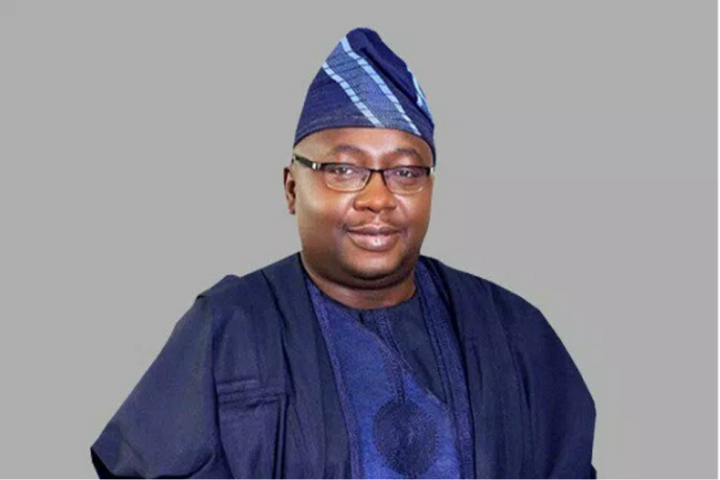The Federal Government has announced plans to inject an additional 7,000 megawatts (MW) of electricity into the national grid as part of its comprehensive energy reform agenda aimed at transforming Nigeria’s power sector and ensuring reliable electricity supply across the country. The Minister of Power, Chief Adebayo Adelabu, disclosed this during a press briefing in Abuja, reaffirming the government’s determination to address the persistent challenges undermining power generation and distribution.
According to Adelabu, the initiative aligns with President Bola Tinubu’s economic renewal strategy, which places energy security at the heart of industrial and economic revitalization. He explained that the government’s roadmap includes upgrading generation capacity, expanding transmission infrastructure, and implementing innovative reforms to strengthen the national grid. The planned 7,000MW addition, he said, will come from a combination of ongoing projects, including the rehabilitation of existing plants, construction of new ones, and increased private sector participation.

“The Federal Government is working tirelessly to ensure that Nigerians have access to reliable and affordable power. Our target is to inject at least 7,000MW of electricity into the national grid within the next few years. This will be achieved through a mix of projects that are already at various stages of completion,” Adelabu stated.
He emphasized that the plan will be executed in collaboration with key industry stakeholders, including the Transmission Company of Nigeria (TCN), the Nigerian Electricity Regulatory Commission (NERC), and Generation Companies (GenCos). The initiative will also benefit from partnerships with international development agencies and private investors who are expected to bring in capital, expertise, and technology to accelerate implementation.
Adelabu highlighted several priority projects currently underway, such as the completion of the Zungeru Hydroelectric Power Plant, which has the potential to add 700MW to the grid, and the rehabilitation of gas-fired power plants in Geregu, Egbin, and Afam. He also mentioned that the government is actively working to unlock stranded generation capacity by resolving gas supply constraints and improving transmission efficiency.
The minister further disclosed that part of the government’s strategy is to modernize the national grid through smart technology integration. This includes upgrading outdated transmission lines, installing advanced monitoring systems, and deploying automated substations to reduce power losses and improve supply reliability. “We are taking bold steps to ensure that the grid can accommodate increased capacity without collapsing. Modernization and digitalization of our grid infrastructure are key to achieving a stable power supply,” he said.
He acknowledged that one of the major challenges facing the sector is the mismatch between generation and distribution capacities. While Nigeria’s installed generation capacity is estimated at over 13,000MW, less than half of that reaches consumers due to infrastructure bottlenecks and inefficiencies. Adelabu assured Nigerians that the government is tackling these systemic issues head-on through a coordinated reform framework.
In addition to technical reforms, the minister revealed that policy and regulatory adjustments are underway to attract investment and improve financial liquidity in the sector. The government, he said, is reviewing tariff structures to ensure cost reflectivity while protecting vulnerable consumers through targeted subsidies. “We are committed to creating a sustainable power market where operators can recover costs and reinvest, while citizens also enjoy fair and affordable pricing,” Adelabu explained.
He also noted that the Federal Government is intensifying efforts to diversify the energy mix by incorporating renewable energy sources such as solar, wind, and biomass. He pointed out that several renewable energy projects are being implemented in rural and off-grid communities under the Rural Electrification Agency (REA) to promote energy inclusion and reduce dependence on the national grid.
“Our energy transition plan focuses on a balanced mix of renewables and conventional power to ensure sustainability and environmental responsibility. We are working towards achieving universal access to electricity in line with our commitment to the Sustainable Development Goals (SDGs),” he said.
Adelabu reiterated that the government’s collaboration with international partners such as the World Bank, the African Development Bank (AfDB), and the Japan International Cooperation Agency (JICA) is already yielding positive results. These partnerships, he said, are supporting critical investments in transmission upgrades and renewable energy infrastructure across the country.
Industry stakeholders have welcomed the government’s renewed push, describing it as a necessary step toward achieving stable electricity supply. The Chairman of the Nigerian Electricity Consumers Advocacy Network (NECAN), Chief Tomi Akinbo, noted that boosting generation capacity is vital but must be matched with improvements in transmission and distribution to ensure end-users feel the impact. “We commend the minister’s efforts, but attention must be given to addressing energy theft, metering gaps, and funding challenges that have crippled DisCos’ performance,” he stated.
Similarly, energy analyst Dr. Chijioke Eke observed that the 7,000MW target is ambitious but achievable if properly managed. He urged the government to ensure transparency in project execution and sustained stakeholder engagement to build public trust. “What the sector needs now is consistency in policy implementation and accountability. The reforms must be driven by data, efficiency, and long-term sustainability,” he advised.
Adelabu concluded by assuring Nigerians that the government’s efforts will soon translate into tangible improvements in power supply, adding that the administration is determined to end decades of erratic electricity that have hindered economic progress. “We are fully committed to delivering a power sector that supports our industries, powers our homes, and drives economic growth. The era of excuses is over; it’s time for results,” the minister declared.
As the government accelerates the 7,000MW expansion plan, expectations remain high that sustained political will, regulatory discipline, and private sector collaboration will finally deliver the stable electricity Nigeria has long awaited.
Support InfoStride News' Credible Journalism: Only credible journalism can guarantee a fair, accountable and transparent society, including democracy and government. It involves a lot of efforts and money. We need your support. Click here to Donate
